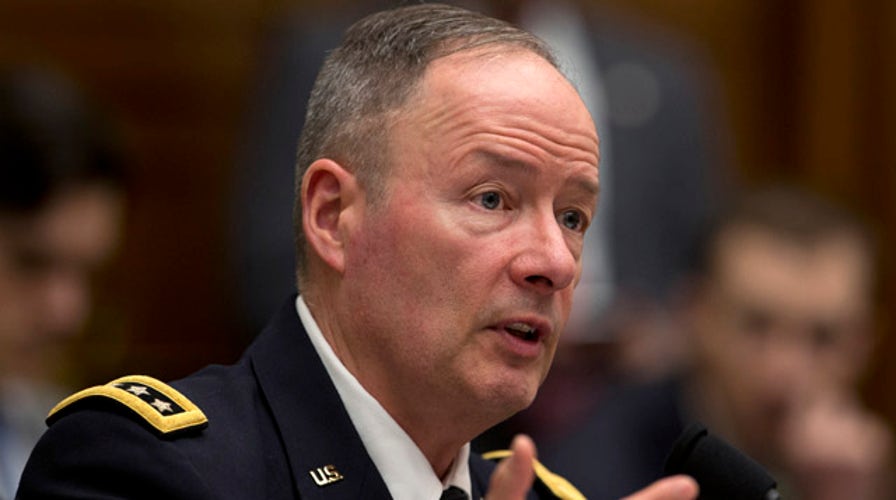President Obama to propose ending NSA phone call sweeps
Bret Baier previews interview with NSA director
The data that National Security Agency leaker Edward Snowden holds could, if released, lead to deaths, the agency's outgoing director says.
Gen. Keith Alexander said in an interview aired Tuesday on "Special Report with Bret Baier" that the possibility that more information coming from Snowden could cost people their lives represents his "greatest concern."
"Do you know what he has?" host Baier asked the general.
"We have a good assessment of what he has, yes," Alexander said.
"And is there a lot more damaging to come?"
"Yes, especially to our military operations and those who are serving overseas," Alexander replied.
Alexander said he was "hugely disappointed" when he learned that Snowden, who was entrusted with sensitive information, began leaking NSA data last summer.
"I think this will haunt him for the rest of his life," Alexander said. "Here's a young guy who made some huge mistakes."
When asked what he would do with Snowden were he granted 15 minutes alone with him, Alexander said he wouldn't attack the former analyst, but instead might reveal to him the damage he's caused the agency, "so he knows the damage -- the significant damage to our nation and to our allies."
Alexander also said the reforms pushed by President Obama, which would require the NSA to prove more direct links from terrorists before acquiring data from telephone companies, are sensible.
"The approach that we put forward ... is one that would limit what we get, so it does away with the business record FISA database as we know it today, and we would now work with the telecommunications company on specific numbers that have a terrorist nexus and get only that data," Alexander said. "This is an approach that I think meets the intent of protecting our civil liberties and privacy and the security of this country."
Also in the interview, Alexander addressed concerns raised by former President Carter, who on Sunday said he uses snail mail to communicate with foreign leaders for fear his emails are being monitored.
"We're not [monitoring the emails]," Alexander said. "So he can now go back to writing emails. The reality is, we don't do that. And if we did, it would be illegal and we'd be ... held accountable and responsible."





